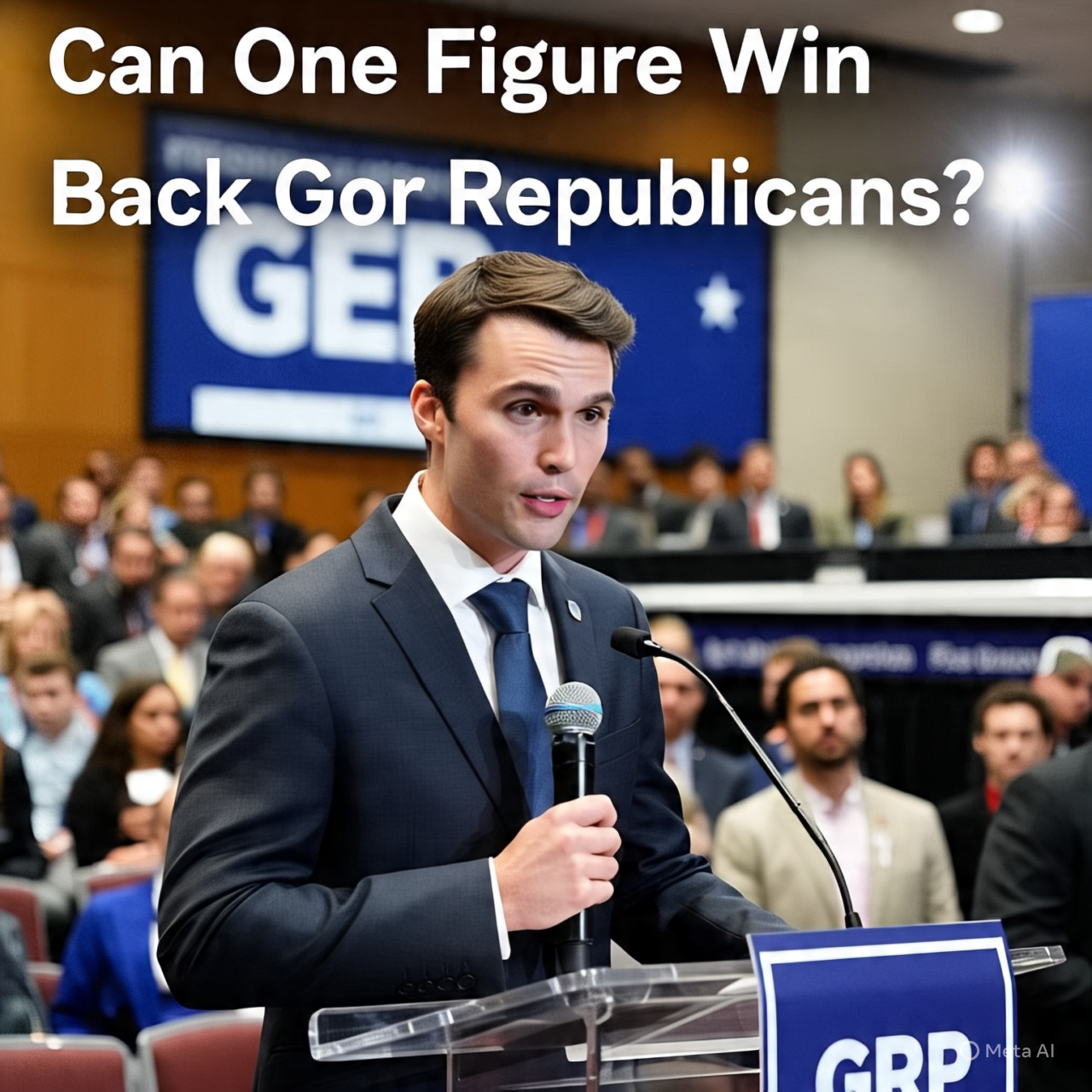FnF News
Can Charlie Kirk Revive the GOP’s Youth Base? Questions Loom Over Republican Strategy for Gen Z
FNF News | May 24, 2025
As the Republican Party wrestles with its post-Trump identity, questions are intensifying around its strategy for attracting younger voters. Among the most visible figures attempting to shape that future is Charlie Kirk, founder of Turning Point USA, a conservative student organization aimed at mobilizing young Americans on college campuses. But critics and observers alike are skeptical about whether Kirk—or any single figure—can serve as the “magic wand” to reverse the GOP’s generational decline.
A Generational Disconnect
Recent polling continues to show a widening gap between the GOP and younger demographics, particularly Gen Z and Millennials. According to a Pew Research Center survey (2024), only 23% of Gen Z voters identify as Republican or lean Republican, compared to 64% who lean Democratic or independent with progressive leanings. Social issues like climate change, gun control, and LGBTQ+ rights play a central role in this generational divide.
“Charlie Kirk represents a very specific brand of conservatism that resonates with a subset of young people,” said Dr. Jennifer Palmieri, political analyst and former White House communications director. “But he’s not the kind of broad tent messenger who can single-handedly shift a generational trend.”
The Charlie Kirk Effect
Kirk, known for his strong pro-Trump stance, combative rhetoric, and frequent appearances on conservative media, has built an extensive network through Turning Point USA. The group boasts over 3,000 student chapters nationwide and hosts conferences that draw major Republican figures.
Yet some GOP strategists worry that his polarizing tone may alienate moderate or politically unaffiliated youth, who often cite tone and inclusivity as major decision factors in choosing political affiliation.
“Kirk is preaching to the choir,” said GOP strategist Lisa Montgomery. “He’s energizing the base, not expanding it.”
The GOP’s Broader Challenge
Beyond Kirk, the GOP faces a messaging crisis with young voters. While some Republicans advocate for adapting the party’s platform to appeal to youth priorities—such as tech innovation, economic opportunity, and civil liberties—others warn against diluting the party’s core principles.
Former presidential candidate Sen. Josh Hawley (R-MO) recently argued at a CPAC panel, “If the Republican Party tries to mimic Democrats on climate and social issues, we will lose both authenticity and elections.”
Is a Single Figure Enough?
Political historians caution against expecting any one figure—whether Kirk, Ron DeSantis, or a rising influencer—to redefine an entire party’s generational identity. Parties evolve over decades, not election cycles.
“The Democrats didn’t build their youth coalition overnight,” said Dr. Michael Tesler, a political science professor at UC Irvine. “It took years of aligning with cultural shifts, policy trends, and authentic voices.”
Looking Ahead
With the 2026 midterms and 2028 presidential race looming, Republican leaders are at a crossroads. Will they double down on culture war tactics popular with older voters, or will they seek new messengers and messages to reach the emerging electorate?
For now, figures like Charlie Kirk remain important but incomplete parts of a broader, unresolved GOP strategy—one that may determine the party’s future relevance.
Sources:
- Pew Research Center (2024) — Political Typology and Age Demographics
- The New York Times — “Can the GOP Win Back Gen Z?”
- CPAC 2025 Panel Transcripts – Republican Youth Outreach
- Turning Point USA — Official Website

